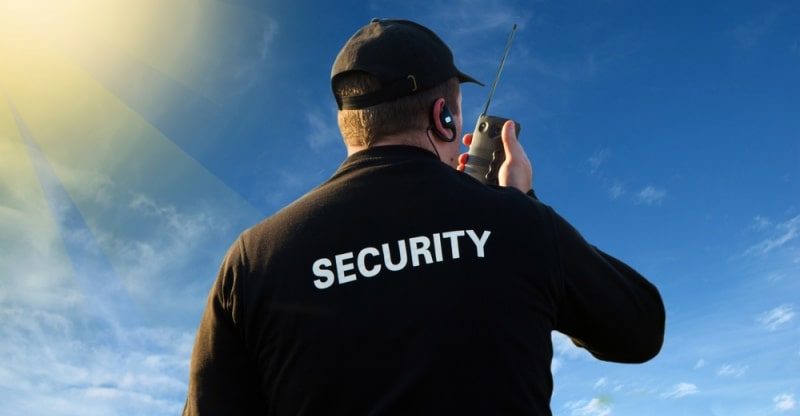Information Worth Knowing: Armed Security Guards
Armed security guards, also known as armed security officers, are tasked with protecting anything from people to property while being licensed to carry weapons. They bear far more responsibility carrying out their duties than an average security guard because the weaponry they possess can be lethal if wrongly handled.
A properly trained armed security guard brings a sense of comfort to those who have hired them whereas an improperly trained armed security guard, or an armed security guard without any training is a nuisance at best and a hazard at worst.
What is an Armed Security Guard?
The three main categories of security guards are government, in-house, and those who are contracted by private security companies. An armed security guard is a type of private security guard, therefore making it a subsection of the later of the three main types of security guards.
Other security guards in this category include unarmed security officers, off-duty police, personal protection officers, and remote video surveillance agents. An armed security guard’s defining feature is their ability to carry a gun and other weapons and is employed in a wide variety of industries.
What are the Duties of an Armed Security Guard?
The work of an armed security guard really comes down to protecting what they are asked to, and there are a number of businesses that require that service. For instance, venues, where expensive goods are being sold, might want an armed security guard to prevent robberies and busy clubs might want armed security guards to prevent any unsavory characters from entering or doing damage.
Some duties of an armed security guard might include protecting others from attacks and harassment, conducting security checks, making incident reports, preventing unauthorized entries, and devising and implementing new security measures if necessary. Armed security guard work is needed at any and all times of day, so those in this field should be able to work morning, evening, and night shifts.
What are the Responsibilities and Requirements of an Armed Security Guard?
Due to the fact they have been authorized to carry dangerous weapons, even if those weapons are nonlethal, the position of an armed security guard comes with a certain degree of responsibility. It is up to an armed security guard to be sure that their weapons are always maintained and secured, and that they have the proper and necessary training for the line of work.
If necessary, they should attend a refresher course on arms use. Armed security guards should also only use their weapons when all non-violent options have been exhausted. Uniforms are required in this line of work, and the uniforms of an armed security good should be clean and properly worn.
Given all this responsibility, it is only natural that there are requirements that must be met before one can become an armed security guard. In fact, out of all the types of security guards, armed security guards have the strictest requirements. A high school diploma or its equivalent is the minimum level of education for an armed security guard.
Firearms training and a firearms license, as well as credentials for nonlethal weapons such as baton and pepper spray, are also important must-haves. Prior experience in jobs similar to an armed security guard, such as in law enforcement or the military, is typically required because those who have been in those professions have received plenty of exposure to weaponry, which is critical to this field.
Personality-wise, armed security guards should be capable of making quick decisions, be dedicated to ensuring the well-being of others, and be able to work well under pressure.
When is an Armed Security Guard Needed?
Armed security guards are the security of choice for businesses that deal with a large risk of crime. Therefore, businesses such as banks, luxury stores, courthouses, and even large hospitals would be likely to hire armed security guards.
To assess whether or not an armed security guard is needed to protect a particular business it should be asked if this business sells high-end goods, if it has large amounts of cash, if the business hosts large public events, if valuable information is involved, or if the business is located in an area with a high crime rate. A yes to any of these questions would provide solid grounds for hiring an armed security guard.
It should be noted that when armed security guards are present, depending on the situation, it can either send a message that is concerning or reassuring. Places that are high risk are locations where customers are likely to feel safer knowing that there is an armed security guard around.
Low-risk places, however, like a museum or shopping mall, are examples of places where visitors might feel concerned for their safety and wonder if the surrounding area is dangerous should they see an armed security guard.
What is involved in Hiring an Armed Security Guard?
When hiring armed security guards, there are subjects such as costs and credentials that must be taken into consideration. Armed security guards charge prices befitting of their extensive training and overall qualifications. One must also be ready to pay for liability insurance because the use of firearms means the risk of death is always present.
Prospective employers of an armed security guard should be prepared to conduct thorough background checks on candidates as a precaution. This would involve confirming that they are indeed licensed to be using a firearm, that they have morally correct beliefs, and that they are not in a situation that would place them at risk of unethical behaviour.
It is important to ensure the hired guard has strong communication skills, good judgement and decision-making skills, and that they are competent with technology.
Armed security guards can be hired through an agency or through the direct hire. The benefits of hiring through an agency would be that the agency conducts the necessary background checks and insurance, and the benefits of hiring directly include full control over the hiring process and no need to pay agency fees.



